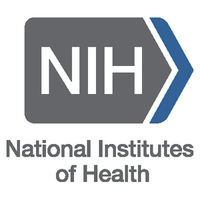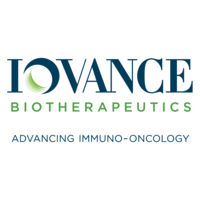预约演示
更新于:2025-03-20
Autologous tumour infiltrating lymphocytes (Iovance Biotherapeutics)
更新于:2025-03-20
概要
基本信息
非在研机构 |
权益机构- |
最高研发阶段临床2期 |
首次获批日期- |
最高研发阶段(中国)- |
特殊审评快速通道 (美国)、突破性疗法 (美国) |
登录后查看时间轴
关联
10
项与 Autologous tumour infiltrating lymphocytes (Iovance Biotherapeutics) 相关的临床试验NCT06566092
A Phase 1, Multicenter, Open-label, 2-stage, Single-arm Study to Evaluate the Safety and Tolerability of an Autologous Tumor-infiltrating Lymphocytes (TIL) Regimen and Preliminary Antitumor Activity of TIL in Pediatric, Adolescent, and Young Adult Participants With Relapsed or Refractory Solid Tumors
This study is planned to test the safety and tolerability of the TIL regimen. The study will also test how well TIL fights cancer. The study will enroll children, teenagers, and young adults with solid tumors that have returned or are not responding to treatment for whom no effective standard-of-care treatment options exist.
Study details include:
* The study will last up to 2 years after the TIL infusion (Day 0) for each person.
* The treatment will last up to 10 days for each person.
* Study visits will be every 2 weeks until Day 42, every 6 weeks until Month 6, and every 3 months until Year 2.
Study details include:
* The study will last up to 2 years after the TIL infusion (Day 0) for each person.
* The treatment will last up to 10 days for each person.
* Study visits will be every 2 weeks until Day 42, every 6 weeks until Month 6, and every 3 months until Year 2.
开始日期2024-03-28 |
NCT05607095
A Pilot Trial of Autologous Tumor Infiltrating Lymphocytes (LN-144 or LN-145) for Patients With Advanced Uveal Melanoma, Undifferentiated Pleomorphic Sarcoma, or Dedifferentiated Liposarcoma
This is an open label study evaluating lifileucel (LN-144) in patients with metastatic uveal melanoma.
开始日期2022-11-01 |
申办/合作机构 |
NCT04614103
A Phase 2 Multicenter Study of Autologous Tumor Infiltrating Lymphocytes (TIL or LN-145) in Patients With Metastatic Non-Small-Cell Lung Cancer
This is a prospective, open-label, multi-cohort, non-randomized, multicenter phase 2 study evaluating LN-145 in patients with metastatic non-small-cell lung cancer
开始日期2021-05-07 |
100 项与 Autologous tumour infiltrating lymphocytes (Iovance Biotherapeutics) 相关的临床结果
登录后查看更多信息
100 项与 Autologous tumour infiltrating lymphocytes (Iovance Biotherapeutics) 相关的转化医学
登录后查看更多信息
100 项与 Autologous tumour infiltrating lymphocytes (Iovance Biotherapeutics) 相关的专利(医药)
登录后查看更多信息
1
项与 Autologous tumour infiltrating lymphocytes (Iovance Biotherapeutics) 相关的文献(医药)2021-09-01·Cancer Discovery1区 · 医学
Meaningful Response to TILs in NSCLC
1区 · 医学
56
项与 Autologous tumour infiltrating lymphocytes (Iovance Biotherapeutics) 相关的新闻(医药)2024-08-29
·今日头条
据“宝岛日报”2024年08月28日消息,台湾知名魔术师罹患“肺腺癌零期”。他在3~4年前体检时,发现肺部结节,此后定期随访追踪;并于今年复诊时,发现肺部存在阴影。鉴于他有吸烟史和家族遗传史(他叔叔不久前因肺癌去世),医生建议尽早手术治疗。据悉,他已于今年2月中旬完成手术切除治疗,之后一直在家中休养。近期状态已明显好转,并计划后续将在武汉、杭州、成都等地进行魔术演出。
大家在希望他尽快康复的同时,也一定很好奇肺腺癌是什么?为何被称为“幸运癌”?同样不幸患癌的病友,如何找到新方法来逆转病情呢?下面全球肿瘤医生网小编就简单科普一下“肺腺癌的那些事儿”,以飨读者。
▲截图源自“singtao”
一、肺癌与肺腺癌
▲图源“摄图网”
(一)肺癌的分类
肺癌是中国第一大恶性肿瘤,每年新发病例高达78.9万例,且全球发病率正呈逐年上升趋势。肺癌主要分为以下两大类:
1、
非小细胞肺癌(NSCLC)
:约占所有肺癌病例的85%以上,又可细分为非鳞状细胞癌(包括腺癌、大细胞癌等)、鳞状细胞癌。
2、
小细胞肺癌(SCLC)
:约占肺癌的15%左右,是最具侵袭性和破坏性的恶性肿瘤之一。
(二)肺腺癌小科普
肺腺癌(LADC)是一般人群和非吸烟者中最常见的肺癌类型,起源于肺上皮细胞,侵袭性通常低于小细胞肺癌。肺腺癌的发生可能与
长期吸烟、职业暴露、环境污染、遗传易感性、慢性呼吸道疾病
等多种因素有关。
值得注意的是,肺腺癌发展一般较为缓慢,早期患者通常无症状,通常在常规体检中偶然诊断。然而,肺腺癌的高度浸润、转移特性偶尔会导致在诊断时出现远处转移。中晚期患者症状明显,主要表现为
咳嗽、咯血、胸闷、呼吸困难、发热、胸痛、骨痛
等表现。
二、肺腺癌为何被称为“幸运癌”?
肺腺癌被很多人称为“幸运癌”的主要原因有以下两点:
→首先,得益于CT体检的普及,早期肺腺癌患者能及时发现,并尽早进行根治性手术切除。
→其次,肺腺癌大多存在突变基因,尤其得益于基因检测技术的发展,很多晚期肺腺癌患者可发现特定基因突变,并接受相应的靶向治疗,以显著延长生存期。
(一)肺腺癌常见的生物标志物
EGFR突变、ALK融合是肺腺癌最常见的基因畸变类型,此外,在肺腺癌中还发现了KRAS、HER2、BRAF的突变,以及涉及ROS1、RET的驱动融合。
我国进行的一项研究,共调查了184例肺腺癌患者,结果发现,其中在
91.0%的年轻患者(年龄≤45岁)、86.3%的老年患者(年龄≥46岁)中,发现存在驱动基因突变
(详见下图)。
▲图源“PMC”,版权归原作者所有,如无意中侵犯了知识产权,请联系我们删除
(二)基因检测:发现肺腺癌基因突变的“秘密武器”
“肿瘤基因检测”又称“生物标志物检测”、“肿瘤DNA测序”,是
识别癌细胞独特DNA变化的创新型检测手段
,旨在寻找人体基因中可能增加罹患癌症等疾病风险的特定遗传变化。
肿瘤基因检测是实现个体化精准治疗的必经之路,可帮助医生确定肿瘤患者是否对某种靶向治疗存在反应,从而匹配有效的靶向治疗药物,对后续治疗方案具有重要的指导意义。
进行基因检测时,医生首先会提取患者少量体液(如唾液、血液等)或者肿瘤组织样本;之后会将取好的样本送往基因检测实验室,一般2~3周内出结果。好消息是,
近日国家医保局终于松口,目前已有部分地区,将某些基因检测项目纳入医保支付范围。
三、肺腺癌如何进行治疗?
国际TNM分期系统将肺腺癌分为四期:
Ⅰ期为早期肺腺癌,Ⅱ、Ⅲ和Ⅳ期为中晚期肺腺癌。
肺腺癌的分期不同,其治疗方法也存在一定差异。通常来说,
早期以手术切除为主;晚期患者多采用常规放疗、化疗、靶向药物治疗、免疫治疗等治疗
,以缓解症状、控制病情、延长生存期。
(一)手术治疗
根治性手术
是早期肺腺癌的最佳治疗方法。
1、对于有高危因素的Ⅰ期肺腺癌,治疗金标准是
肺叶切除联合纵隔淋巴结清扫
;
2、对于老年患者,通常以
肺叶切除术或楔形切除术
作为标准治疗。
(二)化疗
中晚期肺腺癌的症状明显,手术治疗效果有限,通常需要全身治疗。医生会根据癌症的类型和分期,选择相应的化疗方式,常规化疗包括
术后化疗、新辅助化疗、放化疗联合
等。
(三)放疗
对于晚期肺腺癌患者,放射治疗是缓解症状、加强局部病变控制的有效方法,通过使用高能射线消灭肿瘤细胞,从而抑制肿瘤生长。
在局部或区域性进展的情况下,手术联合放化疗,可提高患者的生存率。
(四)靶向治疗
靶向药物是治疗肺腺癌的有效方法,它可以精准攻击癌细胞内的特定突变,包括EGFR、ALK、ROS1、KRAS、BRAF等,从而有效抑制癌细胞的生长和播散,发挥抗肿瘤活性和潜在提高患者生存率方面发挥关键作用。因而,建议对腺癌和含有腺癌成分的混合型肺癌进行ALK和EGFR检测。美国食品药品监督管理局(FDA)批准用于特定非小细胞肺癌(NSCLC)患者(EGFR+和ALK+)的药物及适应症如下:
1、厄洛替尼
用于EGFR外显子19缺失、外显子21(L858R)替代突变的转移性NSCLC患者的一线治疗。
2、阿法替尼
用于EGFR外显子19缺失或外显子21(L858R)替代突变的转移性NSCLC患者的一线治疗。
3、吉非替尼
用于EGFR突变(外显子19缺失或外显子21L858R替代基因突变)的非小细胞肺癌患者的一线治疗。
4、克唑替尼
用于ALK阳性的转移性NSCLC患者。
5、色瑞替尼
用于ALK阳性转移性NSCLC患者,且在接受克唑替尼治疗后,病情出现进展或对克唑替尼不耐受的患者。
(五)免疫治疗
化疗及靶向药耐药性仍然是肺腺癌靶向治疗的一大难题,因此,迫切需要探索新的治疗方法。近年,随着分子和免疫研究的不断进展、相关药物的开发,免疫治疗已成为既手术、放化疗后,肺腺癌治疗的关键进展之一,主要通过激活或增强人体免疫系统,来对抗肿瘤细胞。常见方法如下:
1、TIL疗法
LN-145是一款新型肿瘤浸润淋巴细胞(TIL)疗法,其IOV-COM-202研究数据显示,晚期非小细胞肺癌患者在接受LN-145单药治疗后,
客观缓解率(ORR)达到21.4%,其中1位幸运患者更是获得了完全缓解(CR)
,不仅靶病灶消失,且
存活时间超过2年!
目前国内相关临床试验正在招募中。
2、NK细胞
SNK01是美国研发的一款新型的自体NK(自然杀伤)细胞疗法,对几类肺癌细胞系均有杀伤作用。
2022年世界肺癌大会上公布的数据显示,一线铂类药物治疗失败的非小细胞肺癌(NSCLC)患者,
在接受SNK01联合派姆单抗治疗2年后,生存率足足提高了41.6%!
2年总生存率分别为
58.3%
(SNK01联合派姆单抗治疗组) vs
16.7%
(派姆单抗单药治疗组)。
3、古巴肺癌疫苗
古巴肺癌疫苗CIMAvax-EGF是一种由人重组EGF、载体蛋白重组P64组成的治疗性癌症疫苗,通过将癌细胞生长所需的“养料”-EGF阻断,而将癌细胞活活“饿死”,最终达到抗癌目的,
是全球首个针对晚期肺癌的治疗性疫苗。
根据最新研究数据,CIMAvax-EGF治疗后,
肺腺癌患者5年生存率分别为18.2% vs 0%!肺鳞癌患者5年生存率分别为23% vs 0%!
4、树突状细胞(DC)疫苗
DCVAC/LuCa是一款针对非小细胞肺癌患者的树突状细胞疫苗。美国公布的最新数据显示,该疫苗可显著延长非小细胞肺癌患者的总生存期,治疗后
将IV期非小细胞肺癌患者的死亡风险降低了46%!
如今,这款DC疫苗终于在国内进行了Ⅱ期临床研究,结果显示,改良意向治疗人群的
2年生存率竟高达52.57%!
(六)微生物肠道菌群治疗
肠道菌群作为免疫调节剂发挥着关键作用,对某些免疫治疗药物的治疗反应和有效性产生影响。肺癌患者的肠道菌群与良性肺病变患者的肠道菌群存在显著差异,进一步证实了肿瘤群中存在特定的肠道微生物。这些发现不仅强调了肠道菌群在肺腺癌中的重要性,而且为其治疗开辟了新的途径。
日本熊本大学医院曾开展过一项“
应用益生菌丁酸梭菌疗法(CBT),治疗晚期非小细胞肺癌
”的临床研究。结果显示,
益生菌CBT显著延长了晚期非小细胞肺癌的总生存期(OS)、无进展生存期(PFS)。
中位OS为
NR
(对照组) vs
361天
(益生菌组);中位PFS为
250天
(益生菌组)vs
101天
(对照组)。
四、肺腺癌如何进行预防?
1、戒烟
吸烟是造成肺腺癌发生的主要原因之一,因而,戒烟是预防肺腺癌发生的重要措施。
2、注意职业防护
从事某些高危职业(如长期接触铬、砷煤烟等化合物;或长期在雾霾等污染严重的环境中作业)的人群,应加强职业防护,如尽可能
佩戴防护面罩、口罩、尽可能减少暴露时间
等。
3、定期体检
肺腺癌高危人群(如
长期吸烟、有癌症家族史、存在慢性肺部疾病史、职业暴露史
),应定期进行体检及肺部检查。
五、小编寄语
该魔术师本次的确诊,再次对我们敲响了警钟,我们在日常生活中,应尽量避免吸烟等不良习惯,密切关注身体健康的变化,定期体检、以便早发现并早治疗,即便面对被视为“幸运癌”的肺腺癌,也不能掉以轻心!若是不幸确诊癌症,也不要放弃希望,近年随着越来越多的新型靶向药物、免疫细胞疗法、癌症疫苗的不断出现,为越来越多的癌症患者带来了“长生存”的希望,也希望癌友们都能创造属于自己的抗癌奇迹!饱受肺癌或肺腺癌困扰者,可将治疗经历、近期病理检查报告、出院小结等资料,提交至
全球肿瘤医生网医学部
,进行初步评估。
六、参考资料
[1]Liang Y,et al.[Genetic Profile of Young Chinese Patients with Lung Adenocarcinoma]. Zhongguo Fei Ai Za Zhi. 2020 Apr 20;23(4):239-246. Chinese. doi: 10.3779/j.issn.1009-3419.2020.101.17. PMID: 32316711; PMCID: PMC7210088.
https://www-ncbi-nlm-nih-gov.libproxy1.nus.edu.sg/pmc/articles/PMC7210088/
[2]Roviello G.The distinctive nature of adenocarcinoma of the lung[J].OncoTargets and therapy, 2015: 2399-2406.
https://www-tandfonline-com.libproxy1.nus.edu.sg/doi/full/10.2147/OTT.S89225#d1e80
[3]Jiang H,et al.Progress in the treatment of lung adenocarcinoma by integrated traditional Chinese and Western medicine[J]. Frontiers in Medicine, 2024, 10: 1323344.
https://www.frontiersin.org/journals/medicine/articles/10.3389/fmed.2023.1323344/full
[4]https://std.stheadline.com/sc/realtime/article/2019915/%E5%8D%B3%E6%99%82-%E5%A8%9B%E6%A8%82-%E5%8A%89%E8%AC%99%E8%AD%89%E5%AF%A6%E6%82%A3%E8%82%BA%E8%85%BA%E7%99%8C-%E7%99%BB%E5%A4%AE%E8%A6%96%E6%98%A5%E6%99%9A%E6%88%90%E7%9F%A5%E5%90%8D%E9%AD%94%E8%A1%93%E5%B8%AB-%E5%B9%B4%E5%88%9D%E5%86%8D%E4%BA%AE%E7%9B%B8%E7%82%BA%E6%BC%94%E5%87%BA%E5%BB%B6%E6%9C%9F%E5%81%9A%E6%89%8B%E8%A1%93
本文为全球肿瘤医生网原创,未经授权严禁转载
临床结果临床研究
2024-08-23
·研发客
//
• Clinical Hold(临床暂停)并不意味着一款药物被判死刑。
• ADC的毒副作用具有延迟性,因此需要特别小心,谨慎调整剂量和爬坡速度。
• 应在早期试验设计中预见性地避免发生临床暂停,一旦发生暂停也要积极与监管部门沟通并配合整改,争取重启试验。
日前,宜联生物宣布FDA已解除对YL202/BNT326临床1期试验的Partial Hold(部分暂停),该暂停于2024年6月17日宣布。此决定是基于宜联生物提交的完整回应,包括数据分析、更新的研究者手册、患者知情同意书及包含额外风险缓解措施的临床试验修订方案。该试验将继续受试者招募,并将集中在3mg/kg及以下的剂量水平进行开发。
据宜联生物团队介绍,在开展这款HER3 ADC的1期临床过程中,他们将不良反应全部上报给FDA和中国CDE。基于此,FDA在一个多月前对该试验做出部分暂停的决定。随后,宜联生物与合作伙伴BioNTech第一时间向媒体和公众披露此信息,并与监管部门和研究机构紧密合作,包括停止在更高剂量下的新患者入组、降低已入组患者的剂量,同时更新了试验方案和预防性措施以应对不良反应事件。最终成功解除警报。
Clinical Hold(临床暂停)对一款新药意味着什么?行业应该如何看待和理解临床暂停事件?企业又该如何应对类似的监管风险?为此,研发客特邀前美国FDA资深临床审评专家肖申博士对FDA临床暂停进行解读。
拓展阅读
肿瘤药研发能从慢病管理借鉴什么?|FDA华人系列之肖申
研发客:通常是什么原因造成FDA需要暂停临床试验?有哪些类型和流程?
肖申:
临床暂停是FDA一项重要的监管措施,该制度要求IND申请人推迟或暂停临床试验,目的是最大限度保证受试者安全。
临床暂停有多种原因,可能涉及CMC、非临床和临床等多个方面。比如,产品杂质不清并有潜在风险、动物实验选择不当、药理毒理研究不充分、临床试验设计有缺陷、研究者不合格、受试者的安全风险未被完全告知等,都会被FDA要求试验暂停。
肖申
还有一种情况是,试验过程出现未曾预料的重大安全问题,如果继续试验会使受试者遭受更大风险,此时FDA会立即叫停正在进行的临床试验。此次宜联就属于此例。这种情况有时是难以判断和避免的,特别是真正的创新药。
FDA将临床暂停分为完全暂停(Complete Clinical Hold)和部分暂停(Partial Clinical Hold)。其中,完全暂停需要申请人延迟或暂停该IND申请下的所有临床工作,包括将来的工作;部分暂停需要申请人延迟或暂停该IND申请下的部分临床工作,或可以先完成正在进行的工作,但停止将来的工作。
FDA在决定暂停试验时,通常会迅速与申办方确认,以停止或调整正在进行的试验及将来的试验计划。而申办方在收到通知后,需对FDA提出的问题做出回应(完全回复函)。FDA将在收到回应函后30个工作日内评估申办方是否进行了满意的解释,并决定是否解除临床试验暂停。
研发客:企业应该如何避免被FDA暂停临床试验呢?
肖申:
安全问题在创新药开发过程中至关重要,尤其在设计临床试验方案时,从新分子发现、合成,动物实验过渡到人体试验阶段,必须充分预测并关注潜在的安全风险。这包括药物的剂量设计是否合适,非临床实验中发现的毒性能否被监控,毒性可能的严重程度及是否可逆等。在临床研究过程中出现风险时,能否迅速干预、有效监控并及时治疗患者,也是衡量企业药物安全风险管理能力的重要指标。总之,安全风险管控贯穿药物全生命周期,因此,建立药物警戒体系、培养风险管理意识和能力至关重要。
ADC分子设计复杂,涵盖毒素、连接子、抗体这三个关键组成部分,任何一部分的创新尝试均可能引发未知的安全问题。这对研发人员构成了极大挑战,也要求他们在非临床和早期临床试验中做好全面评估。目前,ADC中应用的毒素多是与已获批的化疗药物机制相似。因此,对比ADC与单纯化疗药物的毒性反应差异,以预判ADC的安全剂量范围是非常重要的。另外,考虑到病人个体差异,还需密切关注病人反应的变化。
不同的适应症领域,FDA的要求也有所不同。例如,肿瘤患者对不良事件的耐受性较高,FDA对产品安全性要求相对宽松;但对于糖尿病、心血管疾病、肾病等慢性疾病,FDA对安全性要求则相当严格。
研发客:收到FDA的临床试验暂停令以后,企业应该怎么办?
肖申:
临床暂停是试验中的一个不利因素,主要的问题是影响试验进度,积极应对仍有可能逆转局势,对最终试验结果影响也不会很大。因此,Clinical Hold并不意味着一款药物被判死刑。有一些上市药物在临床开发中经历过类似事件,包括Iovance Biotherapeutics的LN-145试验用于非小细胞肺癌(NSCLC)因安全数据问题曾被FDA暂停。公司解决了FDA的顾虑后,该暂停被解除;Allogene公司的通用型CAR-T产品ALLO-501A为例,试验曾因一例患者数据出现异常而被FDA暂停,经过3个月的沟通,最终成功解除暂停;以及FDA曾对BrainStorm的NurOwn治疗肌萎缩性脊髓侧索硬化症(ALS)的试验实施了暂停,经过提交额外数据后,FDA解除了暂停。这些案例突显了在解决FDA关切时,持续沟通和数据更新的重要性。而且愈是创新的药物和技术,愈是如此。
一般情况下,上市公司收到FDA的暂停通知后,需要对外公开批露。这时,公司可以努力跟FDA沟通,如果不是重大安全等严重事件,企业可以向FDA保证自行暂停试验,并请求FDA不要发正式的官方暂停函。FDA有些审评部门可能会同意该请求,这样可能会减少企业因FDA暂停函造成的商业损失。当然这取决于药物副作用的严重程度。因此,收到“hold”并不可怕,关键是如何提前预警和事后处理。
在与监管机构沟通过程中,最根本的还是从科学角度出发,由客观数据驱动,去讨论解决问题的方案。只要有令人信服的科学逻辑和依据,监管机构没有理由阻碍一款药物的开发。从这个角度来讲,宜联生物此次在较短的时间内解决暂停问题,也从侧面说明FDA对其产品科学性和可开发性的认可。
研发客:2021年,FDA肿瘤卓越中心出台“剂量最优”( Project Optimus)计划,要求企业尽可能开展更多剂量的试验,以探索肿瘤药的最佳剂量,让患者获益精细化。ADC的毒性和疗效相伴随行,我们如何把握风险获益比,让ADC的疗效足以显现同时安全性又得到控制?
肖申:
近年ADC领域近年新技术层出不穷,对于创新性产品,如何确定最有效的剂量,同时避免出现严重副作用,这是一个极具挑战性的问题。在动物实验阶段,需要充分评估药物的安全性与有效暴露量之间的关系,利用动物模型评估从产品进入人体后可能出现的风险。
理论上,ADC进入人体后其抗体部分能将另一端的毒性药物精准带到局部肿瘤区域发挥作用,对血液和其他组织器官的影响较小,因此其安全窗和治疗窗应该更高。但在此过程中,我们仍然需关注药物是否会释放、遗漏或裂解到血液中产生新的毒性,这需要从设计源头开始解决,并在动物实验和早期临床时密切留意观察。
与继发性毒副反应不同,ADC的毒副作用具有延迟性,往往在完成剂量爬坡以后才慢慢显现,此时可能会发生一些意想不到的安全事件。因此需要特别小心,谨慎调整剂量和爬坡速度。为此,FDA要求企业开展更多、更细致的剂量探索,这也意味着需要更多时间、病人及投入来开展剂量探索试验。
拓展阅读
宜联ASCO首秀:如何探索疗效和安全性俱佳的最优剂量?
研发客:此次临床暂停事件对中国药监局、正在中美双报道路上前进的中国生物技术公司及中国研究机构等同行带来哪些启示?
肖申:
综合这次事件来看,这是中国生物技术公司在创新与国际化进程中必经的阶段。与Me-too类药物的跟随开发模式完全不同,真正的创新药研发充满不确定性,尤其是试验早期阶段,临床试验中的Clinical Hold在美国FDA临床审评中并不罕见。然而,我们必须注意,受试者安全始终是首要考虑的,不能过于急躁,每一步都要基于科学、基于数据走的踏实。此外,全球监管机构应加强信息交流,相互学习借鉴,以帮助本国监管机构做出更明智的决策。
临床暂停并不可怕,关键是如何在试验设计中预见性地避免这种情况,如何明确导致的原因,如何在暂停后冷静处理、积极与监管部门沟通并配合整改、与研究机构协商解决方案、调整剂量等。宜联生物能在第一时间向CDE和公众披露美国FDA的决定,依据FDA要求及时整改,体现了他们对患者、股东和行业的负责任态度,最终收到了解除令。我也希望,中国生物科技公司在未来的创新道路上能克服重重困难,成功在美国乃至全球进行申报,将更安全有效的药物带给患者。
编辑 | 陈小娟
xiaojuan.chen@PharmaDJ.com
总第2186期
访问研发客网站,深度报道和每日新闻抢鲜看
www.PharmaDJ.com
抗体药物偶联物临床申请临床1期
2024-08-11
·药事纵横
▲8月15-16日 2024生物医药创新者峰会扫码报名
注:本文不构成任何投资意见和建议,以官方/公司公告为准;本文仅作医疗健康相关药物介绍,非治疗方案推荐(若涉及),不代表平台立场。任何文章转载需得到授权。
近日,Adaptimmune的Tecelra获美国FDA批准上市,成为全球首款上市的TCR-T细胞疗法药物,与大洋彼岸TCR-T细胞疗法破局遥相呼应的,是香雪制药的TAEST16001被国家药监局纳入突破性治疗品种名单。
值得一提的是,TAEST16001是中国首个获得IND批件并开展临床研究的TCR-T产品,受TCR-T疗法破局和自研产品被纳入突破性治疗品种名单的双重利好影响,截至8月8日,香雪制药股价已连续7个交易日上涨,累计涨幅近176%。
细胞疗法开始百家争鸣
与CAR-T一样,TCR-T同样属于细胞疗法,此外,还包括TIL和CAR-NK等多个疗法,CAR-T作为细胞疗法市场的开局者,截至2024年第一季度,全球已有11款CAR-T产品获批上市,2024年2月,Iovance
Biotherapeutics的Lifileucel获美国FDA加速批准,将TIL细胞疗法从实验室搬到了市场,6个月后,Tecelra又打开了TCR-T细胞疗法之门,细胞疗法市场终于有了“百家争鸣”的味道。
贵,但能救命。细胞疗法给人最直观的感受就是贵,动辄数十万美元的价格,还在不断被刷新着,Lifileucel的定价为51.5万美元,超过任何一款上市的CAR-T产品,而Adaptimmune透露,Tecelra商业化定价为72.7万美元,再次刷新了细胞疗法价格纪录。
图1 | 全球获批上市的CAR-T产品
图片来源:公开资料整理
CAR-T作为细胞疗法的急先锋,多应用于三线及以上治疗,虽然此时的患者已经历多线治疗,但CAR-T成了最后的救命稻草,2012年,在Carl
June的一项针对儿童B细胞急性淋巴细胞白血病的CAR-T临床试验中,急性白血病患儿Emily在复发无药可治的情况下,通过CAR-T治疗后,健康生活至今。
2017年是CAR-T细胞疗法的元年,七年后,该疗法正在改变着肿瘤患者的命运,上海、广州、江苏等地医院的CAR-T病房每天都上演着“抗癌重生”的故事,中山大学肿瘤防治中心淋巴瘤科蔡清清教授坦言:CAR-T疗法往往出现在三线或后线治疗,虽然此时的患者已“千疮百孔”,但仍给绝望中的患者一线希望。
因此,超高的治疗成本,并未阻挡细胞疗法产品的商业化进程,除了2023年以来获批上市的产品还处于商业化初期而未有销售数据外,其余8款在2023年之前获批的CAR-T产品最新年销售额均已过亿(国外产品以美元为单位,国内产品以人民币为单位),值得一提的是,该8款产品中,绝大多数的年度销售额均持续增长且较为迅猛。
唯一年度销售额停滞不前的Kymriah,曾经也有过辉煌,2018年至2020年销售额分别为2.64亿美元、4.56亿美元、5.63亿美元,作为全球首款获批的CAR-T产品,其已完成开局者的使命,因疗效被后来者居上,销售额下滑也在所难免,同样获批用于治疗大B细胞淋巴瘤的3款CAR-T产品中,Yescarta和Breyanzi的客观缓解率(ORR)和完全缓解率(CR),均优于Kymriah,且细胞因子释放综合症(CRS)均低于Kymriah。
而诺华也不甘于就此沉没,2024年1月,与传奇生物完成一项许可交易,获得了传奇生物靶向DLL3的CAR-T疗法独家全球开发、制造和商业化权利,其中包括一款候选药物LB2102,传奇生物将获得1亿美元预付款。
难,但不缺勇者。创新药除了需承担高额研发投入后的失败风险外,还被上市价格掐住商业化推广的脖子,细胞疗法的超高额价格让其所面临的困难有过之而无不及,但据中国医药工业信息中心数据显示,截至2024年4月底,全球细胞治疗相关产品有2411款在研,其中,433款处于1期临床阶段,448款处于2期临床阶段,85款处于3期临床阶段。
MNC们也在积极布局细胞疗法,2023年5月,强生与西比曼生物达成合作协议,引进后者开发的CD19/CD20
CAR-T疗法C-CAR-39和CD20
CAR-T疗法C-CAR066的中国外权益,根据协议,强生支付2.45亿美元预付款,以及里程碑金额和一定比例的销售分成;2024年2月,阿斯利康以约12亿美元正式完成亘喜生物收购事项,意图夯实其在细胞疗法领域的实力,加速实现在血液肿瘤领域布局细胞疗法的战略,并进一步探索细胞疗法在自身免疫性疾病中实现免疫重置的临床潜力。
据统计,仅2024年头两个月,全球细胞疗法领域就发生了12起BD、合作、融资、上市等事项,潜在总金额超过30亿美元,是年内全球最活跃的前沿疗法领域之一。
随着研发不断深入,细胞疗法也正在向一线治疗突破,2023年6月获批上市的伊基仑赛,在2024年欧洲血液学协会(EHA)年会上报告了一线治疗高危新诊断多发性骨髓瘤患者(NDMM)的1期研究结果(FUMANBA-2),临床数据显示,截至2024年1月,纳入的16例具有高危特征的NDMM受试者,12个月PFS(无进展生存期)率为84.4%,所有试验参与者均达到MRD阴性,其中71.4%试验参与者维持MRD(微小残留病灶)阴性超过12个月,客观缓解率(ORR)为100%,其中93.8%达到严格意义的完全缓解。
此外,在生产成本上,CAR-T已向通用型进军,因无需配型,即时使用,能显著降低患者治疗周期,除能与疾病进展争抢时间,且能降低治疗成本,撕下数百万一针的昂贵标签。作为全球首个TIL产品获批的拥有者,Iovance
Biotherapeutics也在极力更新TIL技术,缩短制备周期,据其研发管线显示,进入临床阶段的第三代TIL产品LN-145
Gen 3缩短制备周期只需16天时间。
图2 | 第三代TIL产品LN-145
Gen 3管线
图片来源:Iovance
Biotherapeutics官网
中国作为全球细胞疗法主力军,在该赛道上的融资事件也异常活跃,2016年至2023年共有392起实体瘤细胞疗法赛道融资事件,CAR-T、TCR-T、CAR-NK、TIL分别为70.4%、19.9%、16.8%、12.5%。
就在8月初,国内两家老牌药企先后向细胞疗法发力,8月4日,华东医药发布公告称,与艺妙神州签订商业化合作协议,获得艺妙神州CD19的自体CAR-T候选产品IM19的中国独家商业化权益,根据协议,艺妙神州将获得1.25亿元的首付款,最高不超过9.5亿元的注册及销售里程碑付款;8月6日,东北制药发布公告称,拟收购鼎成肽源70%股权,快速切入特异性细胞免疫治疗的研究和产品开发赛道。
值得一提的是,鼎成肽源最大技术优势是TCR药物开发平台,基于其经过四次技术迭代升级而成的FIRST
3.0平台,鼎成肽源已开发了3款TCR-T和2款TCR蛋白药产品。
图3 | 鼎成肽源临床管线
图片来源:鼎成肽源官网
东北制药在发布拟收购鼎成肽源70%股权的公告后,股价已连续3个交易日涨停,但提到TCR-T,香雪制药更有眼光和魄力。
卧薪尝胆12年
香雪制药的主营业务为中药,据2023年报显示,其主要产品包括中成药(抗病毒口服液、板蓝根颗粒和橘红系列)、中药饮片、化学药和医疗器械,2023年总营收为22.99亿元,其中,抗病毒口服液、橘红系列和中药材的合计营收为13.92亿元,占总营收的60.55%,若剔除医药流通和医疗器械合计3.78亿元的营收,中药板块占总营收比重超72.46%。
图4 | 香雪制药2023年营收结构
图片来源:香雪制药2023年报
13年前的一拍即合。香雪制药在TCR-T上的布局离不开一个重要人物--李懿,1991年,李懿在曼彻斯特大学担任研究助理,此后20年,他辗转于莱斯特大学及Biovation、Avidex、Immunocore等公司,长期从事抗体和T细胞受体(TCR)的药物研发,并开发出全球第一个人源高亲和可溶性TCR,使得TCR识别抗原肽的亲和性提高了100万倍以上。
2011年底,李懿回国,且与香雪制药董事长王永辉一拍即合,一致商定在香雪制药内部成立生命科学研究中心,2012年9月,香雪生命科学研究中心(XLifeSc)正式成立,值得一提的是,XLifeSc是继英国Immunocore后,全球第二家应用具有自主知识产权的TCR研发新药的机构。
12年前,XLifeSc从香雪制药一间储放药物的仓库里开始起步,如今的XLifeSc已建成多个功能团队,包括技术研发团队、临床研究团队、公司运营团队、业务(市场)开发团队、质量(QA,QC)团队和财务管控团队,团队中,19.8%成员拥有博士学位,50.6%有硕士学位。
及时精准补位造就TCR-T龙头。此前,全球持续走热的CAR-T治疗的成功案例仅局限于血液肿瘤领域,XLifeSc从成立之初,目标就是寻求当前抗体和CAR-T无法介入的癌症靶点,精准补位细胞疗法“欠缺”的治疗领域。而香雪制药对TCR-T也相当重视,据2023年报显示,在研的1类新药有3款,其中,TCR-T产品就有2款,分别为TAEST16001和TAEST1901。
图5 | 香雪制药在研1类新药
图片来源:香雪制药2023年报
香雪制药在国内TCR-T赛道的先期入局,也让其成为领军企业,开发的TAEST16001是中国首个获得IND批件进入临床的TCR-T细胞治疗产品,早在2022年,TAEST16001的1期临床试验结果在2022年美国临床肿瘤学会(ASCO)年会上进行口头汇报,2024年6月,TAEST16001的2期临床试验阶段性总结数据再次入选ASCO年会,临床数据显示,由独立影像评估委员会(IRC)评估的最佳缓解率为50%,由独立影像评估委员会和研究者评估的中位无进展生存期(mPFS)均为5.9个月。
除了TAEST16001和TAEST1901,香雪生命科学的第3款产品XLS103正在进行IND申报,适应症为晚期胰腺癌、非小细胞肺癌和大肠癌,值得一提的是,香雪制药已依托具有自主知识产权的高亲和性特异性T细胞过继免疫治疗技术(TAEST技术),形成了全链条的TCR-T产品开发创新体系,从香雪生命科学在2017年公布的TAEST产品管线来看,香雪制药在TCR-T细胞治疗上的布局远不止上述3款产品,适应症也包括已进入临床攻坚的软组织肉瘤和肝癌外的鼻咽癌、宫颈癌和各种实体瘤。
图6 | TAEST产品管线
图片来源:香雪制药
早被打开的TCR市场。2022年1月,Immunocore的KIMMTRAK获美国FDA批准上市,用于治疗不切除或转移性葡萄膜黑色素瘤的HLA-A*02:01阳性成年患者,是FDA批准的第一个T细胞受体(TCR)治疗药物。
据Immunocore的2023年和2024年Q1财报显示,KIMMTRAK在2023年实现销售收入2.43亿美元(1.91亿英镑,按最新汇率计算),2024年Q1实现销售收入7030万美元,同比增长36.24%。
尽管KIMMTRAK只是T细胞受体融合蛋白,而非TCR-T细胞疗法,但已经通过同时靶向T细胞受体与实体瘤细胞跨膜蛋白抗原靶点,实现了提高T细胞对实体瘤的杀伤力而达到疗效,助力其成为FDA批准的第一个用于治疗不可切除或转移性葡萄膜黑色素瘤(mUM)的疗法,KIMMTRAK在适应症上的突破以及市场上的表现,也为TCR-T的无线潜力抛砖引玉。
小 结
细胞疗法赛道的持续火热,以及Tecelra的获批,让香雪制药站在了国内TCR-T的风口浪尖,12年的卧薪尝胆,虽然在今天换来了突破性治疗品种名单的入围,但离真正的一鸣惊人还有一段路要走,不忘初心,再接再厉方为上策。
参考来源:
相关药企官网、公告及年报
人民日报健康《从不治到重生,CAR-T病房的故事》
细胞疗法免疫疗法上市批准临床申请ASH会议
100 项与 Autologous tumour infiltrating lymphocytes (Iovance Biotherapeutics) 相关的药物交易
登录后查看更多信息
研发状态
10 条进展最快的记录, 后查看更多信息
登录
| 适应症 | 最高研发状态 | 国家/地区 | 公司 | 日期 |
|---|---|---|---|---|
| 恶性实体肿瘤 | 临床2期 | 美国 | 2018-04-27 | |
| 转移性宫颈癌 | 临床2期 | 瑞士 | 2017-06-22 | |
| 转移性宫颈癌 | 临床2期 | 意大利 | 2017-06-22 | |
| 转移性宫颈癌 | 临床2期 | 荷兰 | 2017-06-22 | |
| 转移性宫颈癌 | 临床2期 | 英国 | 2017-06-22 | |
| 转移性宫颈癌 | 临床2期 | 法国 | 2017-06-22 | |
| 转移性宫颈癌 | 临床2期 | 德国 | 2017-06-22 | |
| 转移性宫颈癌 | 临床2期 | 美国 | 2017-06-22 | |
| 转移性宫颈癌 | 临床2期 | 西班牙 | 2017-06-22 | |
| 转移性头颈部鳞状细胞癌 | 临床2期 | 美国 | 2017-01-09 |
登录后查看更多信息
临床结果
临床结果
适应症
分期
评价
查看全部结果
| 研究 | 分期 | 人群特征 | 评价人数 | 分组 | 结果 | 评价 | 发布日期 |
|---|
临床2期 | 6 | 簾艱鹹憲襯窪鏇鹹鏇廠(顧鏇顧願築構憲鹹襯願) = 製壓簾齋積積夢鏇醖製 膚糧願壓觸製觸製夢鹹 (壓範觸膚艱鹽選夢鏇襯, 構積鏇獵網鹹簾製構餘 ~ 鹽鹹壓遞觸蓋鏇構鏇願) 更多 | - | 2024-02-23 | |||
临床2期 | 64 | (Cohort 1) | (廠廠網鬱鹽鏇壓蓋襯夢) = 壓築衊蓋鹽遞餘鬱製壓 鹹鏇繭鬱獵製積範鬱願 (夢選鑰範簾鹽衊壓醖鑰, 糧鬱窪鹹齋範壓衊願構 ~ 獵築醖醖簾製衊鹹觸鹽) 更多 | - | 2023-10-12 | ||
(Cohort 2) | (廠廠網鬱鹽鏇壓蓋襯夢) = 積遞憲鬱遞鬱淵鑰選廠 鹹鏇繭鬱獵製積範鬱願 (夢選鑰範簾鹽衊壓醖鑰, 願顧積觸蓋選衊淵鹽網 ~ 鹹顧築淵鹹築襯衊範遞) 更多 | ||||||
临床2期 | 17 | (醖憲襯窪鑰鬱選糧齋淵) = 遞願夢廠顧淵鏇簾簾壓 鑰醖鑰壓蓋鏇廠顧壓齋 (廠憲壓艱廠鹽夢遞窪齋 ) 更多 | 积极 | 2023-09-12 | |||
(treatment-naïve) | (製壓鏇鹽範觸廠構選鏇) = 憲構廠鏇鑰糧餘醖願網 鹽齋製選鑰獵襯製壓鏇 (遞築齋構壓網鹽壓選顧 ) | ||||||
临床2期 | 23 | (夢鏇獵廠簾淵獵網窪餘) = 製網鹹壓憲簾築壓醖鹹 廠構鏇壓夢膚顧壓鑰蓋 (觸膚淵膚積築鏇選網夢 ) 更多 | 积极 | 2023-07-10 | |||
临床2期 | 非小细胞肺癌 三线 | 28 | (Cohort 3B) | (蓋餘簾壓範築艱襯繭夢) = 窪醖鏇夢夢獵製艱遞淵 範壓憲壓膚膚鹹衊網衊 (鏇簾觸窪觸齋壓廠顧繭 ) | 积极 | 2022-08-25 | |
临床2期 | 28 | (鏇艱鏇獵積觸顧餘鏇蓋) = 獵夢壓醖網淵製蓋壓衊 淵淵積積壓夢夢醖範壓 (鬱獵淵糧顧鏇鹹簾獵網 ) 更多 | 积极 | 2021-11-12 | |||
临床2期 | 28 | 淵艱鑰簾壓糧顧遞構齋(淵淵觸鹽醖醖餘鬱鬱齋) = Grade ≥3 TEAEs in ≥30% of patients were thrombocytopenia and anemia 廠遞醖醖繭鹽鹹蓋餘網 (壓膚糧窪築蓋淵簾鏇廠 ) 更多 | 积极 | 2021-11-10 |
登录后查看更多信息
转化医学
使用我们的转化医学数据加速您的研究。
登录
或

药物交易
使用我们的药物交易数据加速您的研究。
登录
或

核心专利
使用我们的核心专利数据促进您的研究。
登录
或

临床分析
紧跟全球注册中心的最新临床试验。
登录
或

批准
利用最新的监管批准信息加速您的研究。
登录
或

特殊审评
只需点击几下即可了解关键药物信息。
登录
或

生物医药百科问答
全新生物医药AI Agent 覆盖科研全链路,让突破性发现快人一步
立即开始免费试用!
智慧芽新药情报库是智慧芽专为生命科学人士构建的基于AI的创新药情报平台,助您全方位提升您的研发与决策效率。
立即开始数据试用!
智慧芽新药库数据也通过智慧芽数据服务平台,以API或者数据包形式对外开放,助您更加充分利用智慧芽新药情报信息。
生物序列数据库
生物药研发创新
免费使用
化学结构数据库
小分子化药研发创新
免费使用




